[ad_1]
Weight loss is never easy. And as you get older, it becomes more difficult. If you find yourself struggling to shed those stubborn pounds, you should take a look at your drink choices.
“What you drink is super important if you are trying to lose weight as you age,” explains registered dietitian Jonathan Valdez, RDN, owner of Genki Nutrition and a spokesperson for the New York State Academy of Nutrition and Dietetics. “Studies have shown that certain drinks like sugar-sweetened beverages can promote weight gain and should be avoided because of their liquid carbohydrate composition, which does not provide you with satiety, leading you to seek out extra calories at later meals.”
One drink in particular though has been shown to help you lose weight: water.
“Water, on the other hand, has been shown to be a smart choice to help lose weight,” says Valdez. “The findings of randomized controlled trials show that replacing caloric beverages with water was most effective at achieving weight loss.”
But you don’t have to stick with just water to help kickstart your weight loss. Here are six drinking habits that will help you speed up your weight loss as you age, according to registered dietitians. Read on, and for more on how to eat healthy, don’t miss Eating Habits to Lose Abdominal Fat As You Age, Say Dietitians.
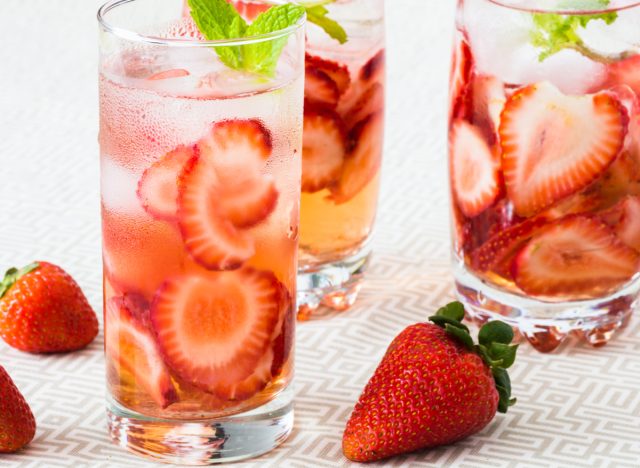
“Strawberries can add natural sweetness and flavor to water while also adding fiber, potassium, folate, and antioxidants. Strawberries, both fresh and frozen, are one of the best sources of vitamin C,” says Bonnie Taub-Dix, RD, a registered dietitian and creator of the website BetterThanDieting.com.
“A serving of about 8 strawberries has as much vitamin C as an orange, which is all the vitamin C we need in a day! Vitamin C helps to support collagen in skin and bones while the strawberries are helping to keep you feeling more satisfied than a simple glass of water.”
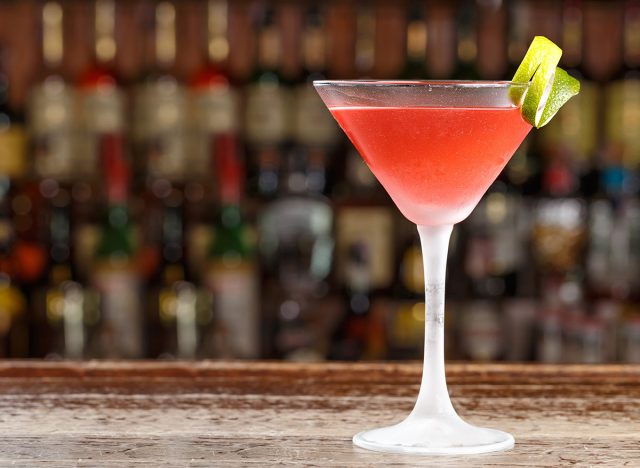
“Limit alcoholic beverages, especially cocktails which could add additional empty calories,” says Valdez. “If you think of one serving of alcohol per day, about 100 calories per serving, then you will be having an additional 700 calories per week.”
READ MORE: Here’s What Happens To Your Body If You Drink Alcohol Every Day
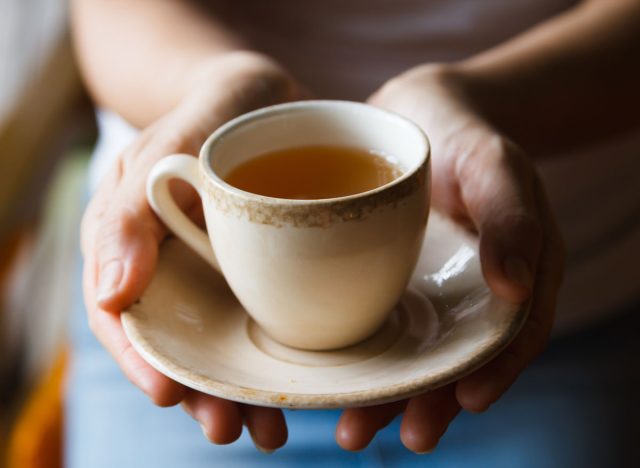
“You get the same water credit for drinking herbal tea, and whether it’s served hot or cold, it’s a delicious way to get fluids in your diet,” says Taub-Dix. “I often cut an apple or pear and add it to my mug of tea before I pour hot water over it. This way, after my last sip, I have a baked fruit to munch on. This natural sweetness helps to finish off a meal.”
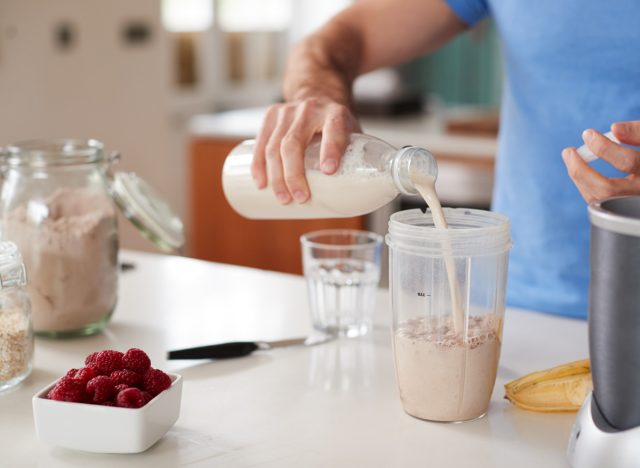
“One study showed that a high-protein total diet replacement (35 % carbohydrate, 40% protein, 25% fat) can support fat loss by increasing energy expenditure and fat oxidation,” says Valdez.
For some ideas, check out The #1 Best Protein Shake to Drink, According to a Dietitian.
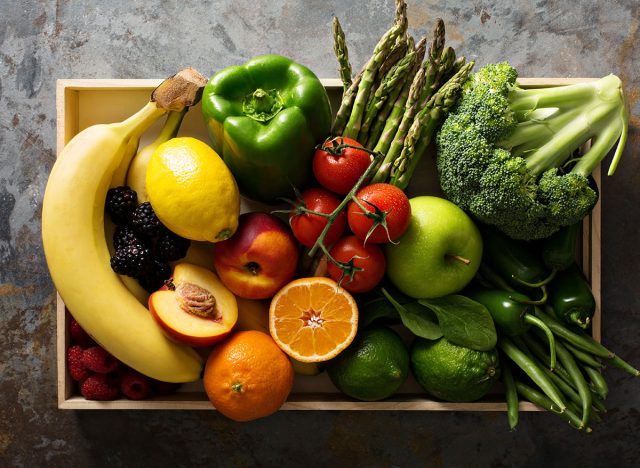
“Fruits and veggies are packed with fiber, nutrients, and antioxidants. Best of all they are low in calories,” says Valdez. “Juicing them can remove fiber, which helps with satiety. The CDC says that only 1 out of 10 adults are eating enough fruits and vegetables. Ask yourself, is half your plate fruits and vegetables? You should be getting 2 to 3 cups of vegetables and 1.5 to 2 cups of fruits per day.”
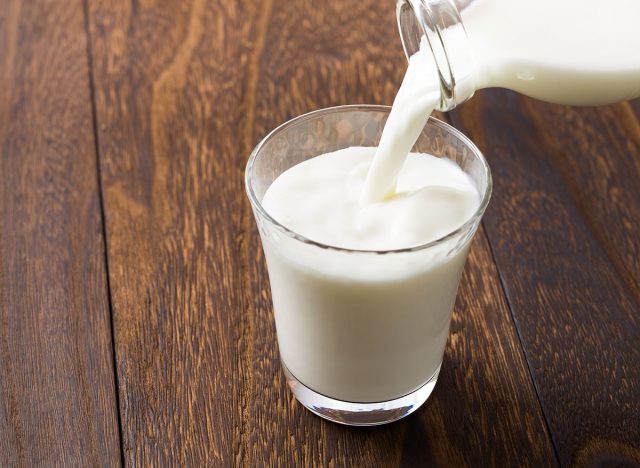
Pour yourself a glass of low-fat milk. A 2019 study published in the journal Nutrients found that participants who increased their intake of low-fat dairy foods to 4–5 servings/day reported more weight loss than those who did not.
Another bonus: a 2020 Brigham Young University study found that people who drank non-fat and low-fat milk (compared to 2% and whole milk) reported less biological aging, nearly 4.5 years compared to those who drank higher fat milks.
[ad_2]
Source link


Heya i’m for the first time here. I found this board and I find It really
useful & it helped me out much. I hope to give something
back and aid others like you helped me.
Thanks I really appreciate that